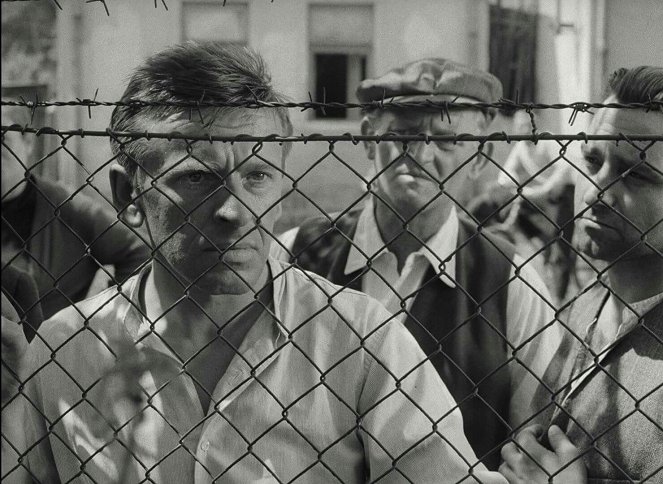Cinematography:
Vladimír NovotnýComposer:
Zdeněk LiškaCast:
Ida Kamińska, Jozef Kroner, František Zvarík, Hana Slivková, Martin Hollý st., Elena Zvaríková-Pappová, Martin Gregor, Adam Matejka, Mikuláš Ladižinský (more)VOD (2)
Plots(1)
An inept Czech peasant is torn between greed and guilt when the Nazi-backed bosses of his town appoint him "Aryan controller" of an old Jewish widow's button shop. Humor and tragedy fuse in this scathing exploration of one cowardly man's complicity in the horrors of a totalitarian regime. (official distributor synopsis)
Reviews (10)
If there is a reason for Ján Kadár and Elmar Klos to roast in hell for their film endeavors from the 1950s (and there are a few reasons), then this film more than redeems their transgressions. An excellent, chilling drama from the wartime period that shows how dictatorship and dark times can distort human characters. By the way, when we compare Hřebejk's acclaimed film Divided We Fall with The Shop on Main Street, we understand the difference between a very good film and an excellent one, and the difference between playing it safe and filmmaking bravery. Overall impression: 100%. One of the best films ever produced by the Czechoslovak film school.
()
It's great to work with so many levels and ambivalence of "I'm a good person, after all, I even arise basically against my will, moreover when something comes out of it, but quietly, no one needs to know, especially when I'm calm", and the portrayal of all the characters who walk in front of, in or behind the shop. It's playful in form (hiding from the viewer/camera is exactly what one would expect Herz to have come up with) and it works in multiple ways. It can be unabashedly emotional, everyone acts with gusto, and it's the actions of the characters that are the defining factor, not the declamatory speeches that many other filmmakers would be tempted to make. It is not a probe into the soul of the Slovak nation through addressing the historical skeletons in the closet, but a probe into the soul of an ordinary man under the pressure of the times. Period. That's what makes it timeless. But the whole thing is marred by the ending, where of all the possible outcomes, the one used is by far (but far) the least interesting, and consequently the least compelling. If "it" had at least been done knowingly… Considering the way the central dilemma is handled all along, this is an undignified, cheap "how to get out of it" from Grossman.
()
Of the three Czech/Czechoslovak winners of the prestigious Oscar so far, I think The Shop on Main Street is the film that deserves the golden statue the most. The initially slow story with a few humorous moments turns into a psychological drama with an inevitable ending. The film realistically depicts the atmosphere during the Second World War in one Slovak village. The natural and convincing acting of Jozef Kroner and Ida Kaminska adds to the film's quality. Of course, the most impressive sequence is the last scenes with the deportation of the Jews and the sad ending, which suddenly turns into a conclusion full of optimism, hope and redemption (I don't want to spoil it). In short, a very nice, authentic and well acted film that made me laugh, touched and amazed me - and that says it all.
()
A Czechoslovak cinematic gem that deservedly won the Oscar for Best Foreign Language Film. This superbly constructed story imbued with an atmosphere of fear and emotionally built to the max, is a chillingly accurate portrayal of the time period it is about. The film is adorned with literally fascinating performances by Jozef Kroner and Ida Kamińska. I dare say they both presented themselves here in the best roles of their lives. The last half hour blew my mind. In fact, I can't remember if I've ever had a similarly strong emotional experience with any other film.
()
Yes, it is true that The Shop on Main Street is about, in essence, a pretty important topic in our history. In any case, it must be acknowledged that this film is from Slovakia rather than Czechoslovakia. This is not to say that it is more about Slovak history than Czech one, as it is clear to me things were exactly the same in Czechia. But the Slovaks contributed more to this film’s creation. Anyway, what didn’t sit well with me was the affected Slovak language, where I kept missing every second line and I had hard time getting into the story. Another problem, however, was the cumbersome filmmaking, where one had to pay a lot of attention in order to perceive every detail and nuance of the story.
()


Ads